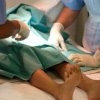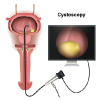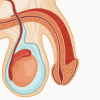Urologist In Chennai
Urological conditions can be both painful and discomforting, presenting a spectrum of symptoms that vary in intensity. Seeking a prompt diagnosis and accessing advanced treatment options for urological conditions can be highly beneficial, offering not only comfort but an improved quality of life. To consult with the best urologists in Chennai for your urological concerns, contact our team today.
Book FREE Consultation
Our Specialities









Stapler circumcision is the procedure of removi...

Laser circumcision is the surgery to remove the...

Phimosis is a condition in which the foreskin o...

Cystoscopy is a diagnostic test that is used to...

Hydrocele is a fluid-filled sac that forms arou...
Best Doctors for Urology in Chennai
Blogs
Frequently Asked Questions
Different urological conditions can manifest different symptoms, but there are some common symptoms that different conditions may share. These include back and/or groin pain, blood in the urine, frequent and/or painful urination, and uncontrolled urine leakage.
The consultation fees charged by urologists in Chennai can vary citywide, depending on several factors. On average, the per-consultation charge can be anywhere from Rs. 500 to Rs. 1,500 in most parts of the city. The difference in fees generally arises based on the experience of the urologists, their educational background, and their reputation.
Those with bladder issues, such as urinary tract infections, urinary incontinence, pelvic pain, kidney stones, prostate issues, and sexual dysfunction, should see a urologist to get an assessment of their symptoms.
Urological conditions are of different types, and their treatment also varies. Common treatment procedures in urology include Circumcision, Kidney Stones Treatment, Prostatectomy, Frenuloplasty, Vasectomy, etc.
There are no prerequisites in terms of what to carry during a urology appointment. However, patients are advised to carry any previous medical records comprising past consultation slips, diagnostic test reports, and previous medication records. Any other document the doctor or hospital/clinic requires must also be carried along during the consultation.
How to Choose A Good Urologist in Chennai?
To ensure effective diagnosis and treatment of different urological conditions, patients need to pay attention to their choice of urologist. In addition, seeking treatment from the best urologist in Chennai can also be beneficial in preventing treatment-related complications and ensuring successful outcomes. Here are some ways to choose a good urologist for treatment:
- If you’ve consulted with a primary care physician for your symptoms, make sure to ask them for referrals. Referrals can also be sought from friends and family members.
- It is important to review whether or not the doctor possesses the necessary qualifications and is board-certified. Information regarding doctor’s qualifications can be found on different websites or can be accessed by contacting the doctor’s clinic directly.
- One of the most crucial aspects of looking for a urologist for treatment included checking their experience. More experience generally means successful treatment outcomes. Research must be done to check what all conditions the doctor can treat, and the type of procedures they are well-versed in.
- Urologists associated with reputable hospitals are generally more reliable. This can also be highly beneficial in accessing top-notch facilities and care.
- Go through online reviews and testimonials from other patients. Checking out reviews can give a good insight into the urologist’s reputation and patient satisfaction.
- Good communication helps establish a good patient-doctor relationship. Check the doctor’s demeanor by scheduling an appointment. A urologist, who is easy to communicate with can ease the treatment journey and make you feel more relaxed throughout.
- Research how accessible the doctor is. Choosing a doctor who’s located in the vicinity can be helpful in emergency situations.
Common Urological Conditions
Urological conditions encompass a variety of types, each type displays both shared and unique symptoms. Furthermore, these conditions can vary in severity, necessitating management tailored to the specific level of severity. Below are some common urological conditions and their associated symptoms:
Kidney Stones
These are hard, mineral or salt deposits that form in the kidneys that result in significant pain when they reach the urinary tract. Kidney stones can accompany some painful symptoms, including severe back or flank pain, frequent urination, blood in the urine, etc.
Benign Prostatic Hyperplasia (BPH)
This condition is characterized by an enlargement of the prostate gland, and it’s common in aging men. It can cause difficulty urinating, frequent urination, weak urine stream, etc.
Urinary Tract Infections (UTIs)
Urinary tract infections are quite common and can occur anywhere in the bladder, urethra, or the kidneys. These infections may lead to symptoms such as frequent and painful urination, a found-smelling urine, pain in the lower abdomen, etc.
Prostatitis
This condition involves an inflammation of the prostate gland, triggered by bacterial infection. Symptoms of prostatitis include painful urination, pain or discomfort in the pelvic area, and fever.
Erectile Dysfunction (ED)
Erectile Dysfunction or ED is the Inability to achieve or maintain an erection, which restricts sexual intercourse. This can occur as a result of vascular issues, hormonal imbalance, and nerve damage, among other factors.
Overactive Bladder (OAB)
Overactive bladder is characterized by a sudden, involuntary contraction of the bladder muscles, which may lead to a frequent need to urinate or urgency to urinate. Symptoms of overactive bladder may include urgency, frequent urination, and nocturia (frequent night time urination).
Interstitial Cystitis (IC)
This is a chronic condition that can trigger inflammation of the bladder wall, leading to pain and discomfort. Pelvic pain, urgency, and increased frequency of urination are common symptoms of this condition.
Incontinence
Urinary incontinence refers to a loss of bladder control. It’s generally divided into certain types, including stress incontinence, urge incontinence, and mixed incontinence. It may or may not accompany other bladder-related symptoms.
Hydrocele
This condition involves an accumulation of fluid in the sac around the testicle. It may trigger swelling in the scrotum, which is generally painless.
Varicocele
Varicocele refers to the enlargement of veins within the scrotum. This condition is similar to varicose veins. Symptoms of this condition may include swelling, discomfort, and, in some cases, infertility.
Bladder Cancer
Bladder cancer happens due to an uncontrolled growth of abnormal cells in the bladder lining. It may cause blood in the urine, significant pelvic pain, and frequent urination.
Testicular Cancer
This is another type of cancer involving an abnormal cell growth in the testicles and usually affects young men. Patients with testicular cancer often notice lumps or swelling along with discomfort in the testicles.